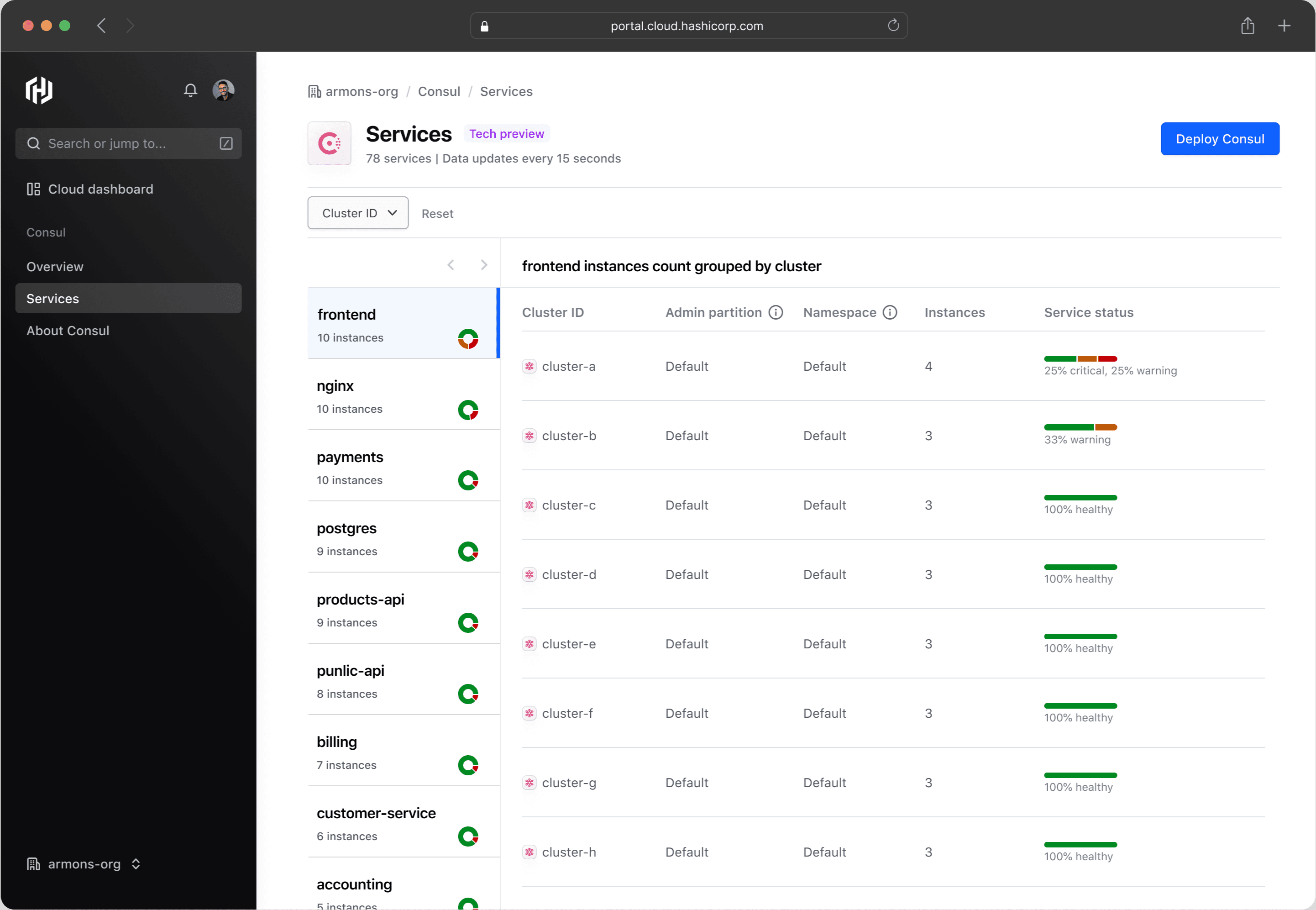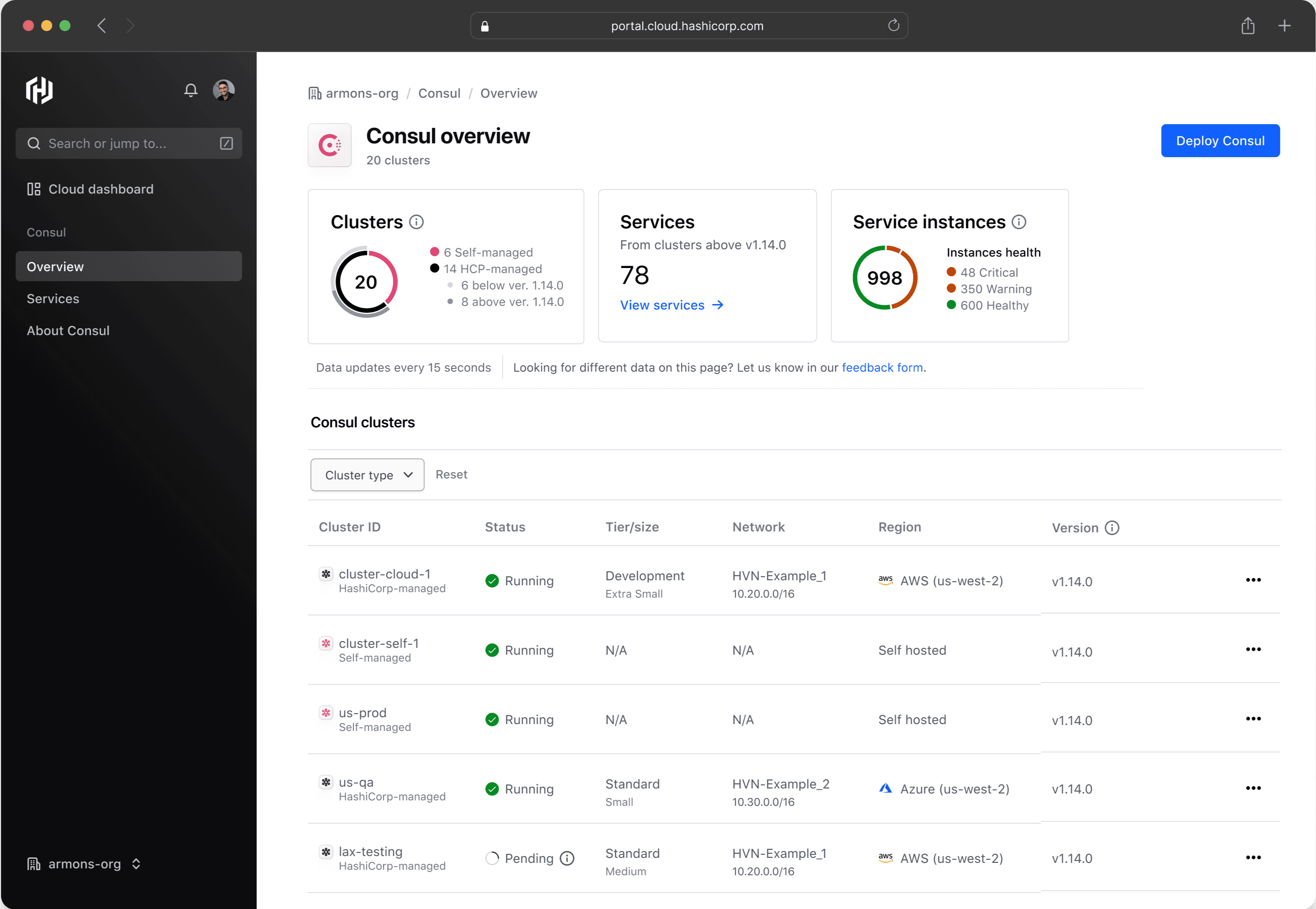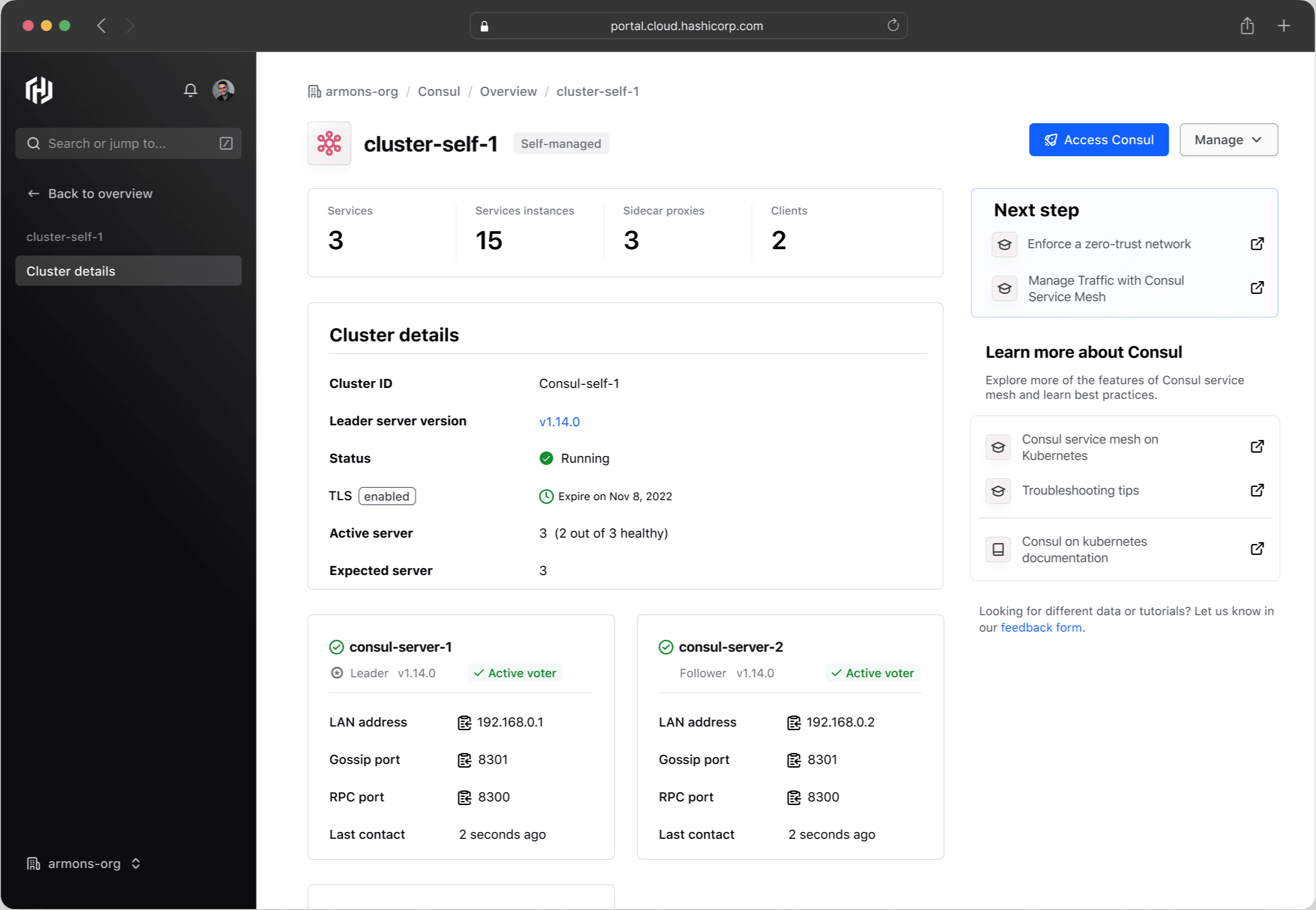In July, we announced the general availability of HCP Consul on Microsoft Azure to support production workloads running on Azure in addition to those running on AWS. HCP Consul is a fully managed service mesh and service discovery platform running on HashiCorp-backed cloud infrastructure.
We’re excited about our progress with the platform and how practitioners are using it as part of their modern cloud networking journey. New capabilities in HCP Consul, announced today at HashiConf Global, will provide users with global visibility and control of their self-managed and HCP-managed deployments. This blog post will share additional details and suggest next steps for accessing this solution when it becomes more broadly available later this year.
»Networking Challenges Organizations Face Today
Typically, when talking about the HashiCorp Cloud Platform, we’re addressing the challenges of initial onboarding and deployment of our tools and the operational burden of managing infrastructure. And when we talk about Consul, we’re concerned with the challenges in tracking and determining the health of services, securely routing both east-west and north-south traffic across multi-cloud environments and runtimes, and many other issues related to automating network infrastructure in a dynamic environment. However, as more of our users choose Consul to streamline their networking workflows and enable Cloud Systems of Record, new challenges come into focus as users scale their service networking environment in a hybrid world:
Scale and management complexity: As services grow across multiple clouds and datacenters, network sprawl and complexity inevitably emerge. To meet larger-scale requirements for cloud networking, today’s organizations and platform teams often rely on a mixed bag of tools, which can be complex and expensive to manage.
Lack of visibility: Platform teams often require a unified view of and insights into understanding services’ health, connectivity status, network topologies, and deployments across many different runtimes and cloud/on-premises environments.
Enabling consistent and zero trust security across clouds and runtimes: Security teams face challenges in securing services across multiple clouds and datacenters while not impeding developer productivity.
»A New Paradigm: Using HCP Consul as a Management Plane for Services Networking
Today at HashiConf Global, we introduced a new capability and vision for HCP Consul. Users will be able to benefit from unified management with global visibility and control to simplify operations across many different environments, including their self-managed clusters (both open source and Enterprise) and HCP managed clusters. This means practitioners will be able to streamline their service networking workflows from a central location and operators will be able to offer Consul as a service with minimum custom tooling. Today’s announcement includes a number of key capabilities:
»Global Service Catalog
With a global service catalog, users see a single view of all the discovered and registered services across all Consul clusters, regardless of where the servers are hosted. Clusters can span multiple datacenters and administrative partitions, and application development teams can discover and reuse services developed by other teams.

A global catalog of services.
»Single Unified View of Clusters
Users can launch HCP Consul to get a single unified view of all clusters, whether they are self-managed or HCP-managed. With today’s announcement, we are starting with support of self-managed Kubernetes clusters.

A single unified view of clusters.
Cluster metadata includes the number of server nodes, services, service instances registered, and server health. With a single unified view, operators can quickly visualize the state of the cluster without any custom tooling.

Detailed view of clusters and key metrics.
»Secure Bootstrapping and Hosted UI
Users can launch HCP Consul to securely bootstrap their self-managed Consul clusters and quickly provide access with a hosted UI. For platform and app dev teams, a hosted UI eliminates the need to set up load balancers to expose the Consul UI. This is especially useful in on-premises datacenters under tight network control from network operators.
»Future Vision for HCP Consul
The new capabilities of HCP Consul announced today are just the start of many ways we envision users will look to Consul as a platform and expand its use as a cloud managed, locally deployed control plane with a unified API. With this Software-as-a-Service (SaaS) offering, users will be able to streamline their networking workflows and improve cluster management, observability, and security irrespective of where Consul clusters are deployed.
Going forward, we intend to further enhance these new capabilities by making it easier for operators to:
- Request connections to specific clusters to enable service-to-service communication
- Provide more operational insights and proactive alerts about expiring certificates, security issues, or versioning incompatibilities before they become problems
- Get metrics and topology visualizations specific to service mesh use cases
- Enable global configuration management to support global policies at scale
»Next Steps
The new global visibility and control updates to HCP are scheduled to be available as a tech preview on October 31, 2022. These updates will be offered at no extra cost to users of both open source Consul and HCP Consul. To be alerted when the tech preview is available, please fill out this form . For more information on HCP Consul, please visit our documentation.









